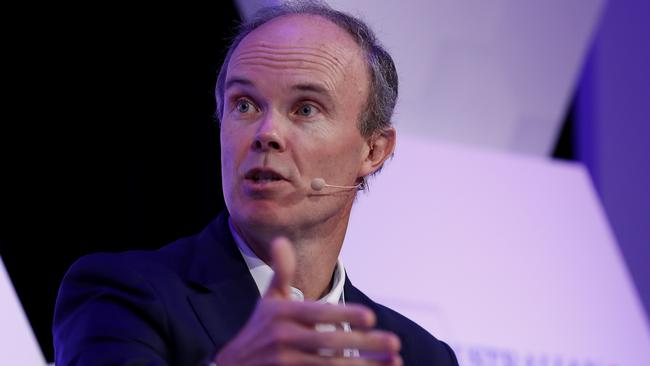
It’s been a white-knuckle ride for Hamish Douglass’ Magellan Financial Group as shares in the firm collapsed by 33 per cent on real fears there will be more pain to come.
Magellan’s top managers, including Douglass, now have work to do as they seek to reassure more than $63bn worth of institutional funds in the lead-up to Christmas.
The sudden exit of London-based St James’s Place Wealth Management sees around $23.3bn gone at a stroke of a pen – it’s an eye-watering amount and investors will rightly be demanding answers. This leaves Magellan as a $93bn – and shrinking – fund manager.
As one major fund manager noted, when you lose a foundation investor it puts a massive spotlight on every aspect of your performance and trustees and asset managers of big super funds will be asking why they still have funds parked with Magellan if others are leaving.
The magic – for now – has run dry for rockstar stockpicker Douglass, who needs to win back trust from the market. And he can do that by paring back in some of his commitments and returning to the investment basics.
Its been a torrid time for Douglass, who recently returned from three months offshore while going through a separation with his wife, losing his long term chief executive Brett Cairns as well as running a company through Covid.
Magellan has said during his time offshore Douglass had been mostly based in London to meet with investors. It’s telling that after three months of face time St James’s breaks the mandate.

His dual role as executive chairman and chief investment officer needs to come to an end, with the board on the hook to bolster its independence by installing a new chairman that can look after the governance and keep Douglass on track for building up the fund’s investment team.
The Magellan board needs to move quickly to install a permanent chief executive, even if that means long-time chief financial officer Kirsten Morton is named as a permanent replacement.
Meanwhile, the personal statement issued by Douglass earlier this month about the separation from his wife Alex is also a sign that Douglass should be doing less for now, not more. The statement was mostly aimed at calming fears of a sudden sell down in the $650m stake in Magellan held jointly by the couple – both said they were committed long-term holders.
The exit of St James’s Place brings to an immediate end a near 10-year relationship with Magellan. US investment giant State Street will now step in to take the mandate as well as a the lucrative fee stream.
St James’s Place, which has the equivalent of $275bn in funds under management, provided little comfort to other institutional investors in Magellan’s funds for its decision to end the relationship.
“We regularly review fund managers across the portfolio and our model allows us to change manager at short notice if we deem it appropriate to do so,” a London-based St James’s Place spokesman said on Monday.
“Our investment management approach gives us the freedom to choose from the best managers in the global investment market in order that we continue to build a world class investment proposition for our clients,” he said.

St James’s Place has been one of Magellan’s most enduring relationships. The London funds house initially signed on in 2012 with an initial $2bn mandate as it outsourced the management of its international equity fund to Magellan. Magellan later oversaw three mandates on behalf of St James’s House, some as a co-investor and others as a sole fund manager.
Holdings for St James’s House mirrored Magellan’s flagship global fund, with major stakes in Facebook, Microsoft and Google-owner Alphabet. It also has stakes in Tencent and Alibaba, which has weighed on the portfolio. These positions are likely to be liquidated, which will see selling pressure at a time tech stocks are being crunched.
It’s also a circular hit for St James’s Place, which also has nearly 94,000 shares in Magellan now worth 33 per cent less following Monday’s price slide.
Earlier this year St James’s Place put Magellan on “amber” review for its relative performance, noting the international equities fund had “underperformed its benchmark”. However St James’s Place gave Magellan an overall “green” rating of for its annual fund manager rating, which made the sudden exit all the more surprising.
Brokerage Macquarie Equities calculates Magellan will now have $63bn of institutional funds under management and $30bn of retail funds. It’s the big dollops of institutional money now at risk in the near term.
Even before the loss of the St James’s Place mandate, Macquarie was tipping a further $3.6bn of fund outflows leading up to the end of June next year.
Naturally Magellan was talking the impact down and was at pains to point out the St James’s funds were held in a separate account and won’t impact momentum in Magellan’s flagship retail global funds.
Still Magellan conceded this represents approximately 12 per cent of the group’s current annual revenues and is anticipated to have approximately a 6 per cent impact on the revenues for the year ended June 30, 2022.
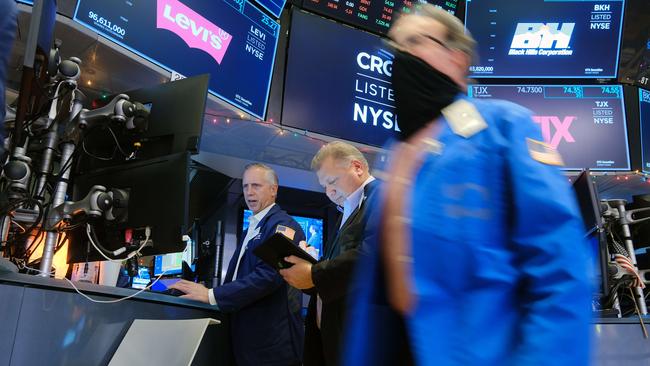
Magellan’s funds have had a rough year and are still underperforming to the end of November. The flagship global fund is down 3.2 per cent compared to the benchmark over three months. It is down 14.5 per cent over one year and down 4.9 per cent over three years and down 1.6 per cent on five years.
This performance has stoked suggestions that Douglass had not anticipated the rapid global recovery from the initial Covid hit, further tarnishing his track record.
Both Douglass and his interim CEO Morton were seeking to reassure employees about the strength of the franchise in a joint memo sent on Monday.
Despite the shadow of the St James’s Place exit, Douglass was urging investors on Monday to look at his long-term track record not “short-term issues”.
In the 10 years to end of October, Magellan’s pre-fee performance was more than 5 per cent annually above benchmark in the top 7 per cent of all global equity strategies ranked by eVestment.
He was also pointing out that even with a conservative investment approach (around 60 per cent of the portfolio is considered defensive which is materially lower risk than the benchmark), the global equities fund has outperformed the benchmark in 10 of the past 14 calendar years since inception.
The thing with funds management is no matter how good your previous returns were, one bad year cascades through the long-term performance tables.
Rio’s China link
It was back to the future for Australian Anglo miner Rio Tinto as it declared its longer term fortunes would be closely aligned with China with the naming of Dominic Barton as its next chairman.
Rio was at least breaking with tradition by picking someone outside of the City of the London circuit for the top board job with the global miner. A Ugandan-born Canadian, Barton has been Ottawa’s ambassador to China since 2019. A McKinsey & Co. alumni, he has also held board and advisory roles across Asia, including as a director with the influential Singtel Group.
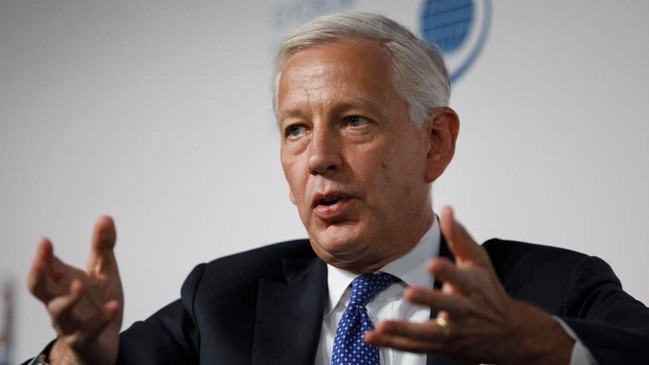
Since Leigh Clifford, Rio’s run of successive CEO’s and chair appointments has been very light on the ground with Australian experience. Global companies need global experience, but when more than 75 per cent of underlying earnings are generated from assets based in Australia some local knowledge helps.
This became increasingly obvious through the last year’s Juukan George fiasco in whether the right questions were being asked by the decision makers.
Rio has moved to address this in the past year with the appointment of Ben Wyatt and Simon McKeon to the boardroom. Also through the appointment of Kellie Parker in newly-created role of Australian CEO.
Still, outgoing chairman Simon Thompson’s exit continues the fallout from Juukan. In March Thompson flagged he would not see re-election at next year’s annual meeting saying at the time he was “ultimately accountable” for the cave blasts.
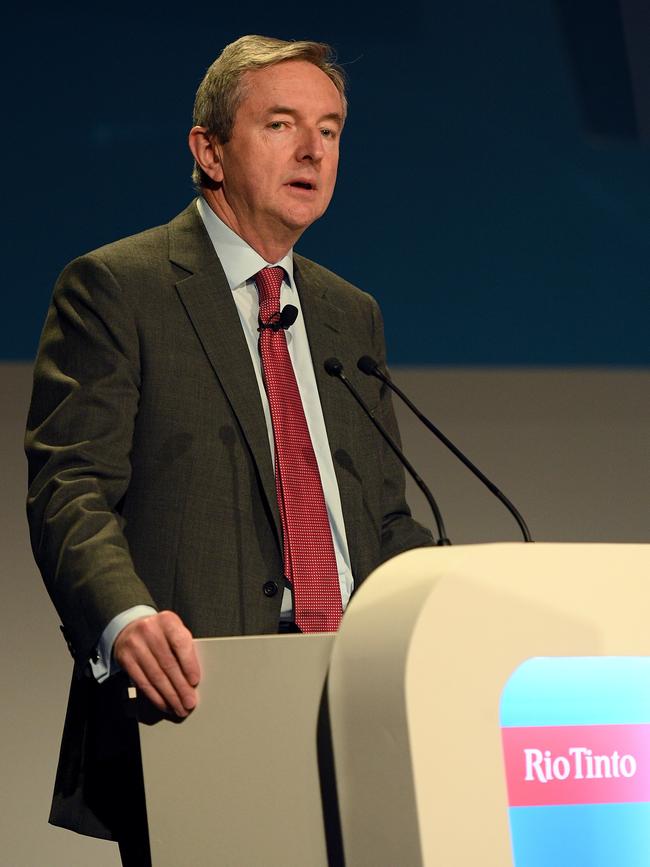
China will loom large over Rio for decades to come. It currently represents 60 per cent of Rio’s sales (and these are Australian export earnings) and so whatever tensions are running with Canberra, Rio is finding a way to get around this. For scale, Rio’s next biggest customer is the US with 11.5 per cent of sales and Japan on 7.2 per cent.
More significantly Rio will make an investment decision some time next year on the massive Simandou iron ore deposit in Guinea which is the closest thing to providing a longer term rival to Australia’s iron ore dominance. Given the rich Simandou deposit is half-owned by the China-backed SBM-Winning consortium, a chair with experience in Beijing diplomacy would be very useful.
johnstone@theaustralian.com.au



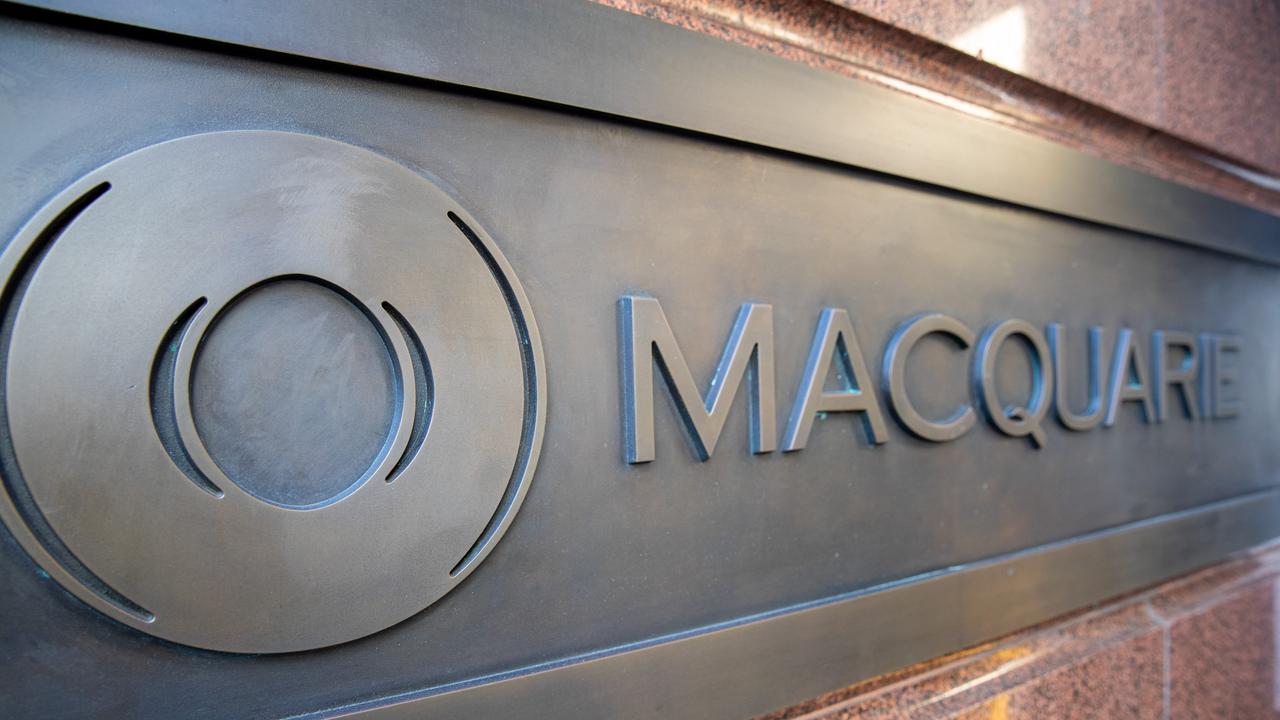
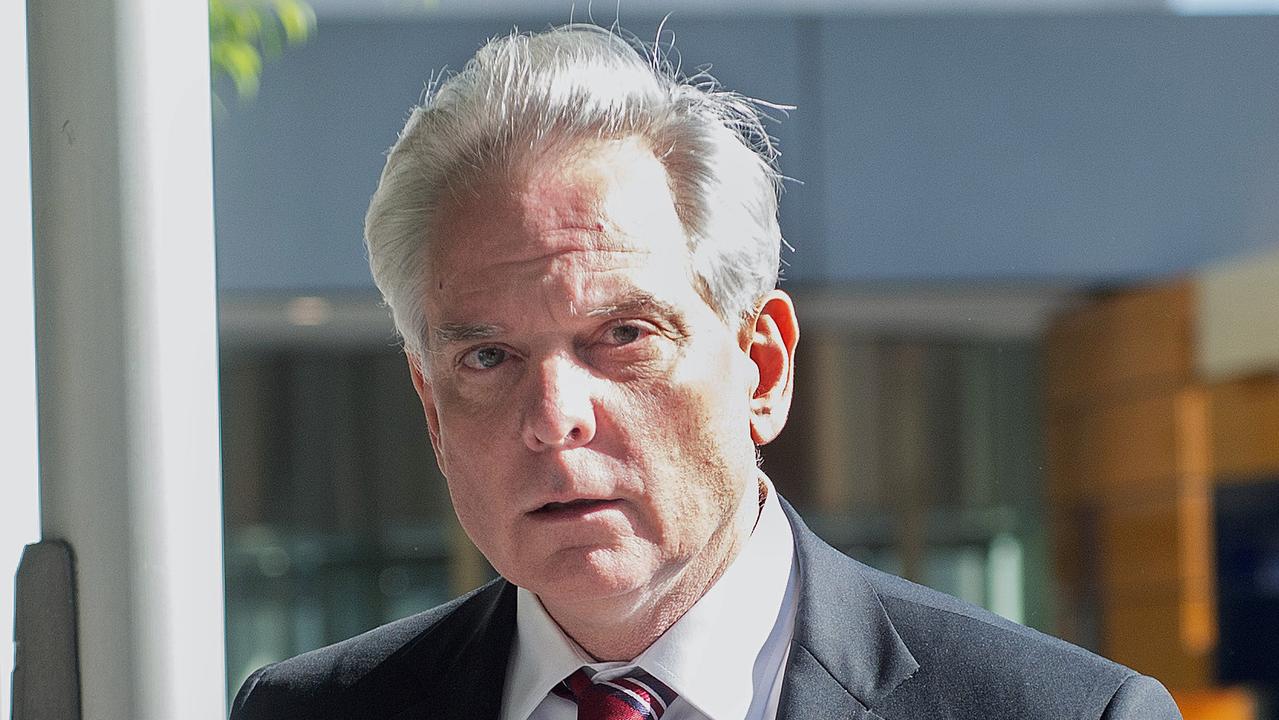
When a fund manager’s single biggest client walks out the door, the race is on to stop others from following.